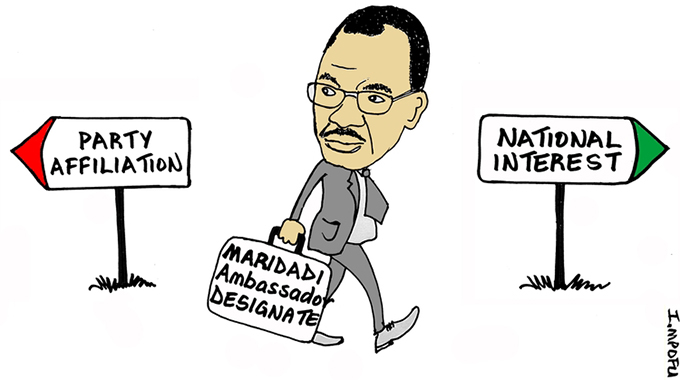EDITORIAL COMMENT : GBV fight needs a paradigm shift

Gender-based violence has been pervasive across the course of human history.
Over the years, the nation had grown accustomed to a narrative of gender-based violence depicting a man physically beating a hapless woman.
When society thinks of an abusive relationship, it often defaults to the idea of a woman as the victim, and the man as the perpetrator. Hardly did society conjure up images of women as abusers in any way. Far from being real, the idea itself of women abusing men 10 years ago, was regarded as comical and perceived as a fallacy, save a few incidences.
The narrative is now changing following an increase in the number of men who are under siege from women in cases of domestic violence.
The Anti-Domestic Violence Council gave an impetus to this latest development last week when they noted that the number of men who reported cases of domestic violence has been on the increase since 2016. According to the Council, in 2017, alone the figures rose to 2 461 from the previous 1 993 that was tabulated in 2016.
Despite the jokes and cartoons about the henpecked husbands, several men are being abused in their relationships, even though society and the men themselves don’t consider themselves as victims of abusive relationships.
While the figures might not be reflective of the situation on the ground, with some men, not keen on reporting for fear of being labelled “sissies” and “unmanly”, domestic violence against men is a growing problem that calls for timely intervention.
Gender-based violence in Zimbabwe and beyond has always been characterised by female victimhood and male perpetration. As a result both the Government and other stakeholders programmed messages and expended resources on women and girls.
The establishment of supporting systems in legislation and structures such as the Msasa Project and several similar initiatives was part of Government’s rehabilitative measures for mainly women and girls in light of abuse from men. While it has taken years of advocacy and support to encourage women to report domestic violence, hardly much was done to encourage men to report abuse, hence the deafening silence, save for sporadic public outbursts.
However, the growing trend of domestic violence against men calls for a paradigm shift in programming, societal attitudes and cultural perception on the problem and ensure that men won’t continue to suffer in silence.
Society should now challenge and disregard outdated stereotypes on gender and power relations that still perceive men as perpetrators of domestic violence. We need to fully understand that boys and men are also vulnerable in specific contexts, and may also be in need of protection. The prevailing economic and social conditions prevailing in the country has left several men emasculated such that they have become punch bags from their partners and within the family.
Even the psychological and emotional trauma they go through at the hands of their families and partners when they fail to put food on the table, warrants attention from both the Government and other stakeholders in terms of support systems so that they do not suffer in silence.
The paradigm shift should also extend to other public institutions such as the media to establish facts and circumstances in alleged domestic violence cases, without being abrasive against men, who might actually be victims of gross domestic abuse. Rather than perpetuate stereotypes where women are regarded as victims of brutal bashing, spotting black eyes, let’s have men opening up on their own experiences at the hands of women.
By playing up these dynamics, we are not ignoring the plight of women when it comes to gender-based violence, but we are acknowledging the multi-faceted nature of the problem.
Already the country already has a zero tolerance policy against domestic violence, a good initiate that needs to be promoted across sexes. We believe peace should start at household level as a subset of society, and violence should be denounced whether perpetrated by men or women.
Time is also nigh for men who are abused to take refuge in the existing legislation on domestic violence which encourages prosecution of perpetrators of gender-based violence, regardless of sex.
Even the law of the land, supports everyone’s right to freedom to personal security without undue influence.
According to Section 52 of the Constitution, every Zimbabwean has a right to personal security and bodily integrity.









Comments